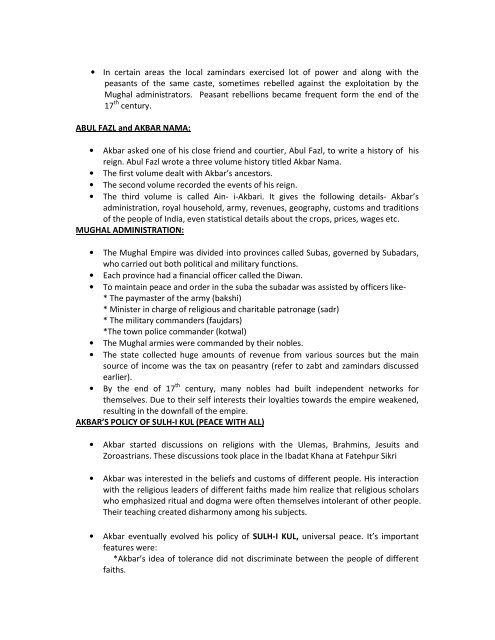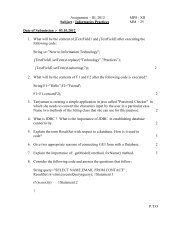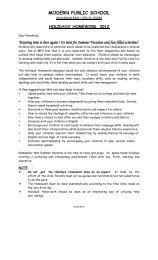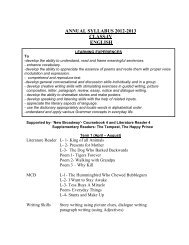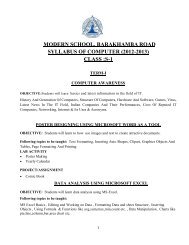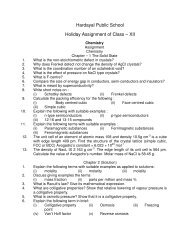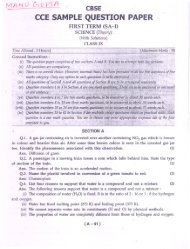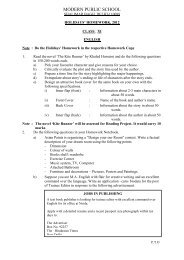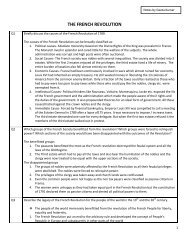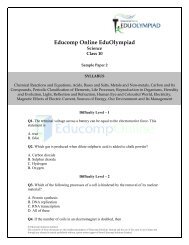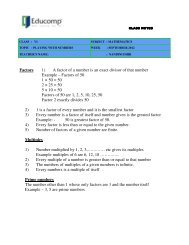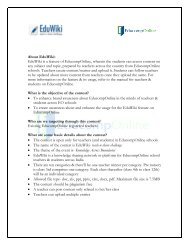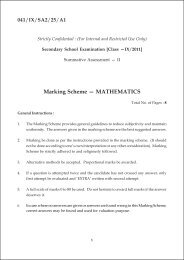THE MUGHAL EMPIRE - Educomp Online
THE MUGHAL EMPIRE - Educomp Online
THE MUGHAL EMPIRE - Educomp Online
Create successful ePaper yourself
Turn your PDF publications into a flip-book with our unique Google optimized e-Paper software.
• In certain areas the local zamindars exercised lot of power and along with the<br />
peasants of the same caste, sometimes rebelled against the exploitation by the<br />
Mughal administrators. Peasant rebellions became frequent form the end of the<br />
17 th century.<br />
ABUL FAZL and AKBAR NAMA:<br />
• Akbar asked one of his close friend and courtier, Abul Fazl, to write a history of his<br />
reign. Abul Fazl wrote a three volume history titled Akbar Nama.<br />
• The first volume dealt with Akbar’s ancestors.<br />
• The second volume recorded the events of his reign.<br />
• The third volume is called Ain- i-Akbari. It gives the following details- Akbar’s<br />
administration, royal household, army, revenues, geography, customs and traditions<br />
of the people of India, even statistical details about the crops, prices, wages etc.<br />
<strong>MUGHAL</strong> ADMINISTRATION:<br />
• The Mughal Empire was divided into provinces called Subas, governed by Subadars,<br />
who carried out both political and military functions.<br />
• Each province had a financial officer called the Diwan.<br />
• To maintain peace and order in the suba the subadar was assisted by officers like-<br />
* The paymaster of the army (bakshi)<br />
* Minister in charge of religious and charitable patronage (sadr)<br />
* The military commanders (faujdars)<br />
*The town police commander (kotwal)<br />
• The Mughal armies were commanded by their nobles.<br />
• The state collected huge amounts of revenue from various sources but the main<br />
source of income was the tax on peasantry (refer to zabt and zamindars discussed<br />
earlier).<br />
• By the end of 17 th century, many nobles had built independent networks for<br />
themselves. Due to their self interests their loyalties towards the empire weakened,<br />
resulting in the downfall of the empire.<br />
AKBAR’S POLICY OF SULH-I KUL (PEACE WITH ALL)<br />
• Akbar started discussions on religions with the Ulemas, Brahmins, Jesuits and<br />
Zoroastrians. These discussions took place in the Ibadat Khana at Fatehpur Sikri<br />
• Akbar was interested in the beliefs and customs of different people. His interaction<br />
with the religious leaders of different faiths made him realize that religious scholars<br />
who emphasized ritual and dogma were often themselves intolerant of other people.<br />
Their teaching created disharmony among his subjects.<br />
• Akbar eventually evolved his policy of SULH-I KUL, universal peace. It’s important<br />
features were:<br />
*Akbar’s idea of tolerance did not discriminate between the people of different<br />
faiths.


